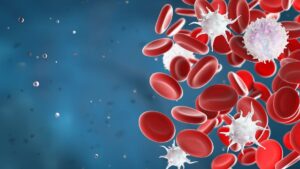Dive Brief:
The Food and Drug Administration will take another three months to complete its second review of BioMarin’s gene therapy for hemophilia A, now promising an answer by June 30.
BioMarin had prepared investors last year for the possibility of an extension beyond the original target of March 31 after it announced plans to give the FDA three years’ worth of patient follow-up data from its principal clinical trial. It got those results in January and shared them with regulators.
The Phase 3 study is the “longest and largest” yet for a gene therapy for hemophilia and strengthens the company’s approval bid, BioMarin said Monday. Still, the FDA deemed the submission a “major amendment” to the application, allowing the agency to extend the review time.
Dive Insight:
While not surprising, the delay is a disappointment for BioMarin, which has already spent years trying to win U.S. approval of its gene therapy known as Roctavian.
The company appeared on track to bring a long-lasting therapy to patients who suffer from the genetic bleeding disease back in 2019, when it first sought approval for Roctavian. The next year, the FDA surprised the gene therapy world by rejecting it, saying the agency needed more evidence that the one-time treatment would provide lasting benefit.
BioMarin collected additional two-year follow-up data and resubmitted its application in 2022, later adding the information on patients tracked for three years. The company has also been working with the FDA on other fronts to get ready to sell Roctavian in the U.S. In December, the agency finished a pre-license inspection of its manufacturing facility.
The treatment is already approved in Europe, and BioMarin last month forecast $100 to $200 million in Roctavian sales this year, depending on U.S. approval and reimbursement in Germany.
The delay could dent sales this year, but analysts said they’re still betting Roctavian will reach the U.S. market. The majority of applications that see delays because of major amendment submissions end up winning approval and the three-year data are consistent with previous findings on bleeding rates, Stifel analyst Paul Matteis wrote in a note to clients.
U.S. regulators have also shown a willingness to approve a gene therapy for hemophilia. In November, the FDA gave the green light to CSL and UniQure’s treatment for the less common “B” form of the disease.
Originally published in BioPharma Dive.


